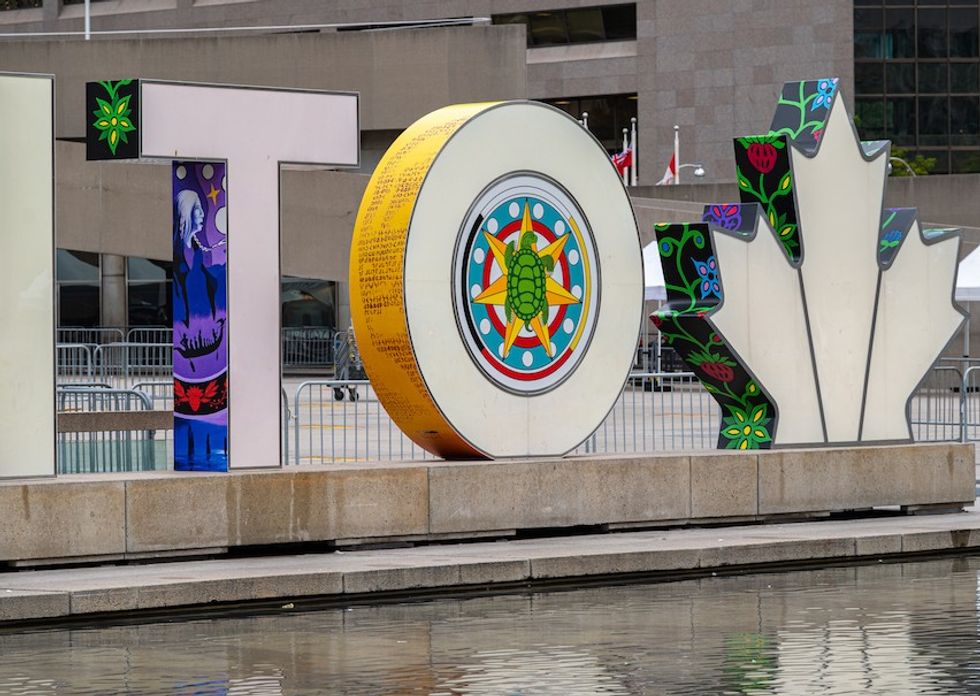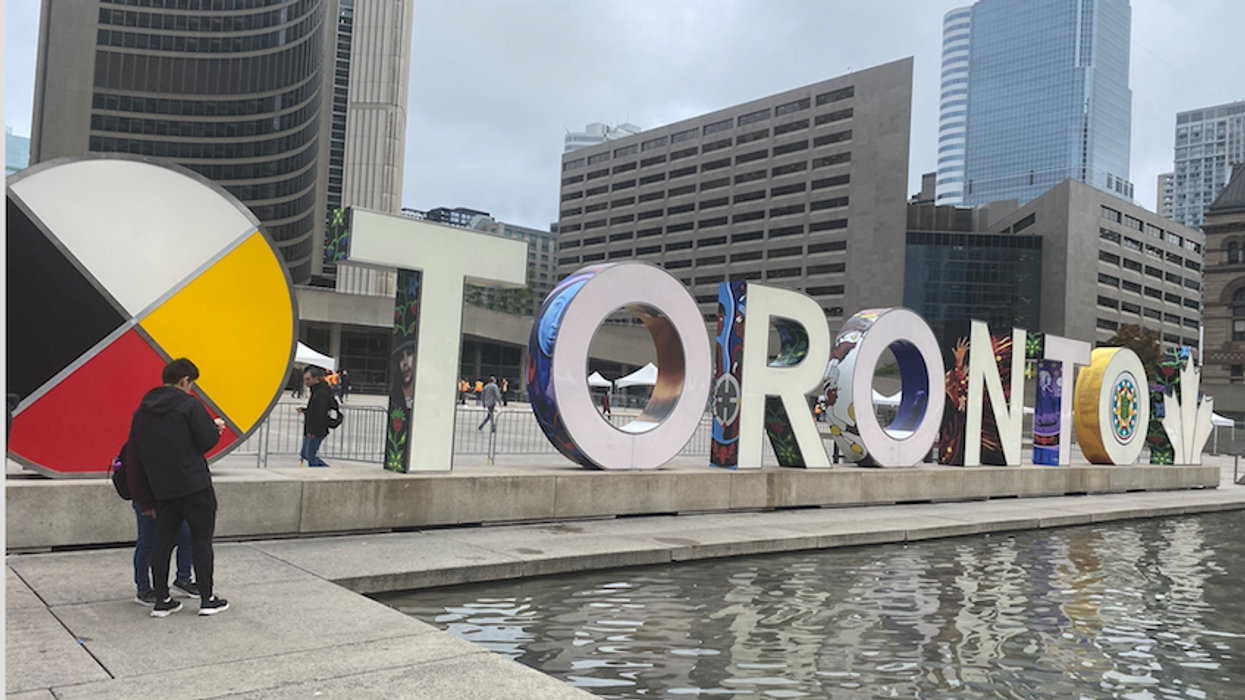Just a few days ahead of the National Day for Truth and Reconciliation, the iconic Toronto Sign has a new look.
At an event held today at Nathan Phillips Square, City of Toronto officials unveiled Rekindle -- a new wrap on the Toronto Sign created by Canadian-Indigenous artist, Joseph Sagaj, in recognition of UNESCO’s International Decade of Indigenous Languages. City officials were joined by Sagaj, Elder Dorothy Peters, and 14-year-old Anishinabe singer and musician, Zeegwon Shilling, amongst others.
In a news release, the City provides some additional context for the new wrap.
“The City recognizes the International Decade of Indigenous Languages, focusing on the preservation, revitalization and promotion of Indigenous languages. In Canada, more than 70 Indigenous languages are spoken. Worldwide, ongoing impacts of colonization threaten Indigenous languages. On Turtle Island (North America), some Indigenous languages are close to extinction, some are at a vulnerable stage and some nations have only a handful of people that hold and speak the language.”
As such, Rekindle draws attention to “how languages are vital to identity, voice and expression" and pays tribute to the rights of Indigenous language speakers worldwide.

Sagaj’s design was selected in May by a community jury and will remain on the Toronto Sign until the fall of 2023. Rekindle is just a taste of his work -- he has been commissioned for numerous private and public logos, murals, illustrations, and painting projects over the course of his career -- and much of what he creates is dedicated to sharing his Anishinaabe ancestry and heritage through art.
“Language is the essence and spirit of my identity and culture. However, it is not exclusive to the spoken word in the ways of storytelling I grew up hearing and speaking in my community,” says Sagaj. “In my later years, I realized that expression and voice are also reflected in art, poetry, song, dance, and storytelling through various mediums and genres. Language is also present in ceremonies; the spirit is expressed by way of the heart and its lifeways.
“My art renderings and what is featured here in the “TORONTO” sign is a ‘glimpse’ of expressions of these ways and reflection of values. From its presentations of syllabics, beaded designs, medicine berries, sacred scrolls, song, dance, and teachings; the seven-pointed star system of clans and governance to the 28-day, 13-moon calendar cycle; of the earth, air, water, to the sky world; of life, the androgynous viewing the vast universe, the poem, to the children, youth, young men, and women and the wisdom of our Elders and Knowledge Holders, are the significance of our traditions, heritage, and world view.”
The Toronto Sign is frequently used to commemorate important persons and causes. Prior to today, the sign featured artwork by Danilo Deluxo McCallum honouring the United Nations’ International Decade for People of African Descent and depicting portraits of African-Canadians.





















